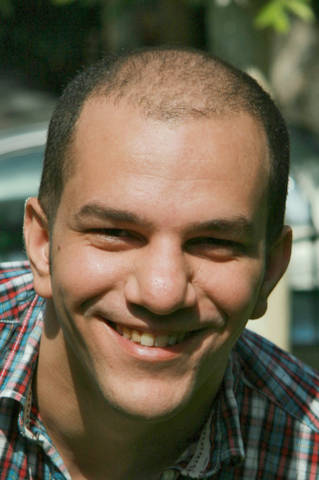Egyptian government fears a Facebook revolution
By Osama Diab
Talk of banning Facebook is only the surface of a greater crackdown on independent media by an insecure government.
2 November 2010
Many Egyptians, in what is still a police state, regard Facebook as a safe haven where they can campaign and express their opinions freely. But that could soon change following a crackdown by the authorities against various types of media.
In Egypt, many opposition movements have either started or grown significantly on the social media network, most notably the 6th April Youth Movement and the national campaign to support Nobel peace prize winner Mohamed ElBaradei as a presidential candidate.
Understanding the impact Facebook now has on Egypt's political life, the Egyptian TV's most popular talk show, Masr el-Nahrda (Egypt Today), suggested banning the popular app or passing a law to regulate Facebook activities in Egypt.
The show's host, Mona el-Sharkawy, and her two guests heavily criticised Facebook and warned viewers against its evil and how it can be used by intelligence apparatuses all over the world to gather secret information about target countries.
Gamal Mokhtar, a technology expert and a guest on the show, said that Facebook has definitely revealed itself as a political tool used by foreign powers to obtain secret information about certain countries.
“We need to prevent problems, strikes and vandalism in the country by regulating it,” said the technology expert. el-Sharkawy also cited the 6 April Youth Movement as an example of how Facebook can be used destructively. She claimed (on no factual basis) that members of the group, which started on Facebook, had destroyed Tahrir Square in Cairo during one of their protests.
This comes at a time when a crackdown on independent media is under way in Egypt ahead of both parliamentary and presidential elections. Ibrahim Eissa, the former editor of the al-Dustour independent newspaper, predicted a crackdown on the internet following the attack on many other media outlets.
“Perhaps soon we'll see urgent legislation to snuff out Egyptians' freedom of expression on the internet. And several understandings will be arrived at with representatives of the western media in Egypt,” Eissa wrote two days before he was dismissed from his post as al-Dostour‘s editor-in-chief.
Many other notable figures critical of the regime's violations were also recently stopped from doing their jobs. Prominent political analyst Hamdi Qandeel and the internationally renowned novelist Alaa ElAswany have both had their columns in al-Shorouk newspaper removed.
Other pre-election measures have included stopping the broadcasting of four independent satellite channels and putting restrictions on the mass sending of mobile text messages (a practice widely used for campaigning by opposition movements in Egypt).
The recent media crackdown – and the talk of “regulating” Facebook in Egypt – is an indicator that the regime does not have the slightest intention of playing the political game fairly and freely. The crackdown is fed by the regime's insecurity as it loses public support. With such lack of popularity, the regime has to choose between losing and cheating – and losing doesn't sound like a viable option.
It won't be surprising if the government tries to link some criminal incidents with the use of Facebook in order to gain support for regulation – for example, by making it a crime to start a political group on Facebook.
Worried by the fact that the state TV is only a tool for delivering the government's message and that criticism of Facebook was probably not an arbitrarily chosen topic, a Facebook group entitled “together to stop the ban of Facebook in Egypt” has started campaigning and attracted more than 10,000 members in just a few days.
The suggestion of a ban shows the regime is worried of any medium that shows real trends and statistics in Egypt, which they have no control over. It's also because the regime is definitely losing the Facebook numbers game; it's hard to imagine that Mokhtar would have still suggested control over the social network if it was President Hosni Mubarak who got a quarter of a million fans on his page rather than ElBaradei.
This column appeared in The Guardian Unlimited's Comment is Free section on 21 October 2010. Read the related discussion. Reprinted here with the author's permission. © Osama Diab. All rights reserved.


